595 tulosta löytyi
Skip results of view Uutiset
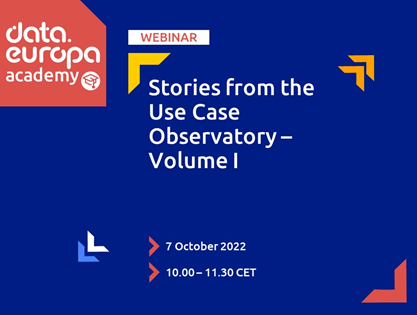
The Use Case Observatory is a three-year-long research project by data.europa.eu. It aims at contributing to the portal’s broader goal to measure the economic, governmental, social and environmental impact of open data. To do so, the Use Case Observatory monitors 30 re-use cases of open data from 2022 to 2025, focusing on the services they offer, the data they use, and the impact they create over time. On the occasion of the launch of the first of the three reports foreseen within this research project, the webinar ´Stories from the Use Case Observatory – Volume I’ wa s organised on 7 October

‘The teams behind the apps’ is a series of videos made by the EU Datathon finalists. Get to know this year’s teams and their apps over a set of 12 episodes, twice weekly, in the run-up to the competition finals. On 20 October, the teams will pitch their apps to a jury that will select the winners. An audience will also be able to support their favourite team through the Public Choice Award vote. Register now to follow the finals online! In their EU Datathon project, Free Software Foundation Europe e.V. (FSFE) visualises the links between businesses, the public sector and individuals involved

The potential of open data for improving healthcare in Europe is becoming more and more evident. That open data can play a major role in delivering the best health service possible to support patient care has been proven by NHS Digital , the UK´s National Health Service. NHS Digital supports NHS staff at work, helps people get the most appropriate care, and uses the nation’s health data to drive research and transform services. They do this by using the tech General Practice Extraction Service (GPES). GPES collects general practice (GP) data, including information on food parcels
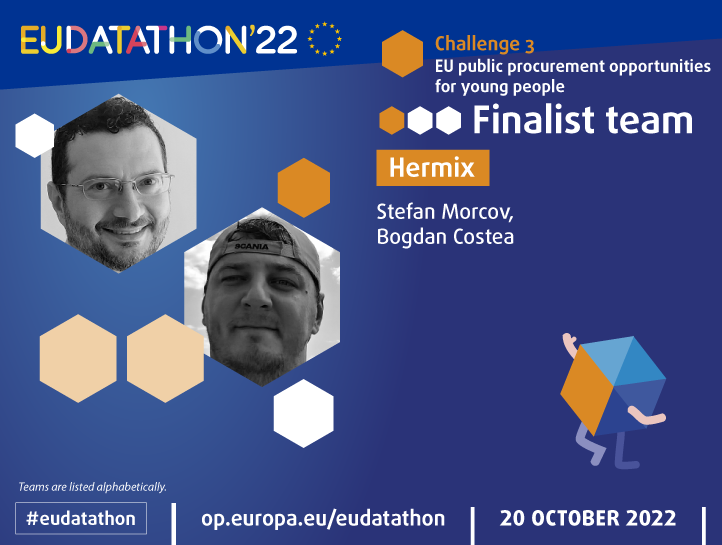
‘The teams behind the apps’ is a series of videos made by the EU Datathon finalists. Get to know this year’s teams and their apps over a set of 12 episodes, twice weekly, in the run-up to the competition finals. On 20 October, the teams will pitch their apps to a jury that will select the winners. An audience will also be able to support their favourite team through the Public Choice Award vote. Register now to follow the finals online! Hermix relies on big data analytics and artificial intelligence and has been built as a tool for strategic marketing analysis of the business-to-government
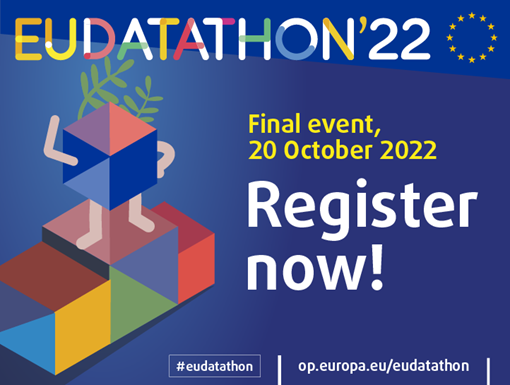
10 days are left until the final event of the EU Datathon 2022 that will be streamed online to allow teams´ supporters and open data enthusiasts from around the world to participate. EU Datathon is the annual EU open data competition organised by the Publications Office of the European Union . This year´s edition saw 159 entries from 38 countries: the highest number so far in the EU Datathon’s history. Among these 158 entries, 12 teams have been selected for the finals after two rounds of pre-selection, presided over by the jury of experts. The teams will compete for a prize money totalling
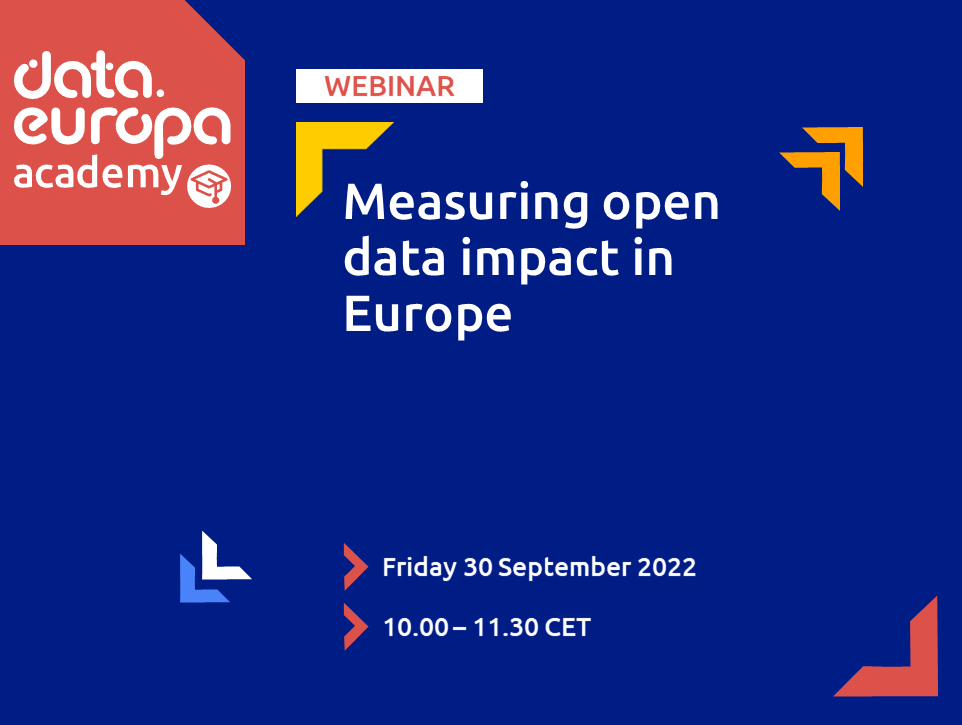
On Friday 30 September 2022, the data.europa academy webinar on ´Measuring open data impact in Europe` took place. The webinar aimed at providing an overview of existing methods to assess the impact of open data in Europe, while also encouraging additional reflection on how impact can be better measured in the future. With this goal in mind, the webinar started with an introduction on why open data impact should be measured and what is defined as ´impact` by the most commonly used methodologies, among which the Open Data Maturity (ODM). Particular emphasis was placed on the effort to update
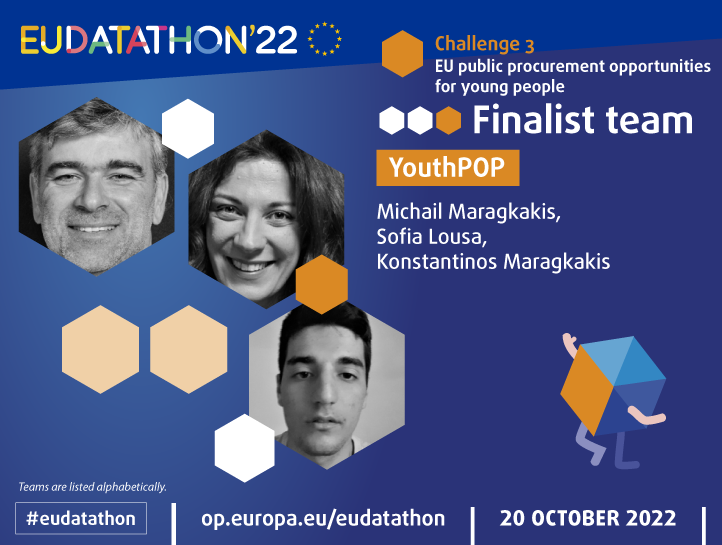
‘The teams behind the apps’ is a series of videos made by the EU Datathon finalists. Get to know this year’s teams and their apps over a set of 12 episodes, twice weekly, in the run-up to the competition finals. On 20 October, the teams will pitch their apps to a jury that will select the winners. An audience will also be able to support their favourite team through the Public Choice Award vote. Register now to follow the finals online! The YouthPOP (youth public open procurement) project combines historical Tenders Electronic Daily (TED) data with machine-learning technology. The goal is to
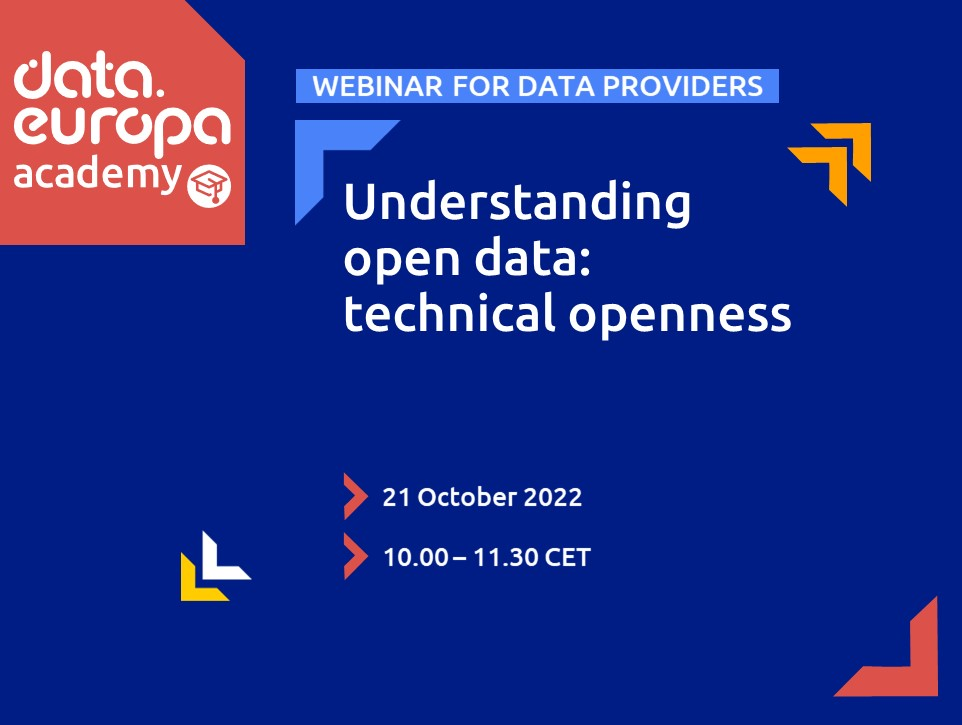
Open data needs to be technically and legally open, and ideally available in bulk in a machine-readable format. This means that published data should be available in electronic file formats or as API that are machine-readable and non-proprietary, so anyone can access and use the data using common, freely available software tools. For this purpose, data providers should be able to answer questions such as: What is the format int o which we should transform datasets? What is the quality of this data? How can we move from closed to open formats? The data.europa academy’s webinar ‘ Understanding
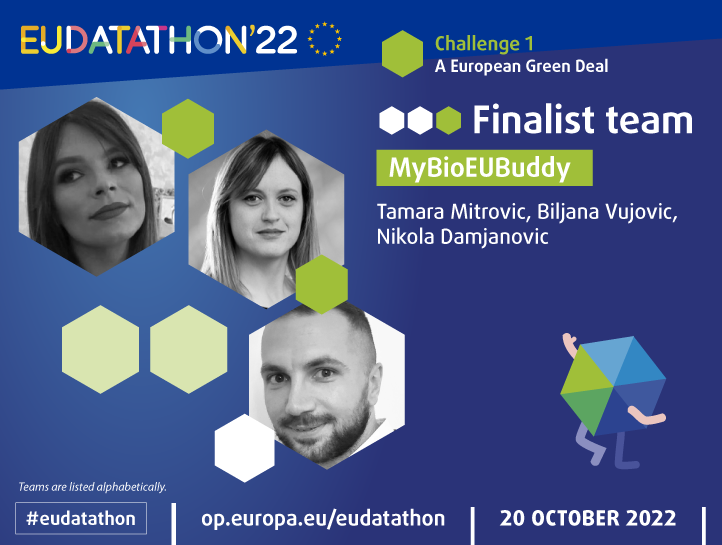
‘The teams behind the apps’ is a series of videos made by the EU Datathon finalists. Get to know this year’s teams and their apps over a set of 12 episodes, twice weekly, in the run-up to the competition finals. On 20 October, the teams will pitch their apps to a jury that will select the winners. An audience will also be able to support their favourite team through the Public Choice Award vote. Register now to follow the finals online! Organic farming is an agricultural method that aims to produce food using natural substances and processes. As such, it tends to have a limited environmental
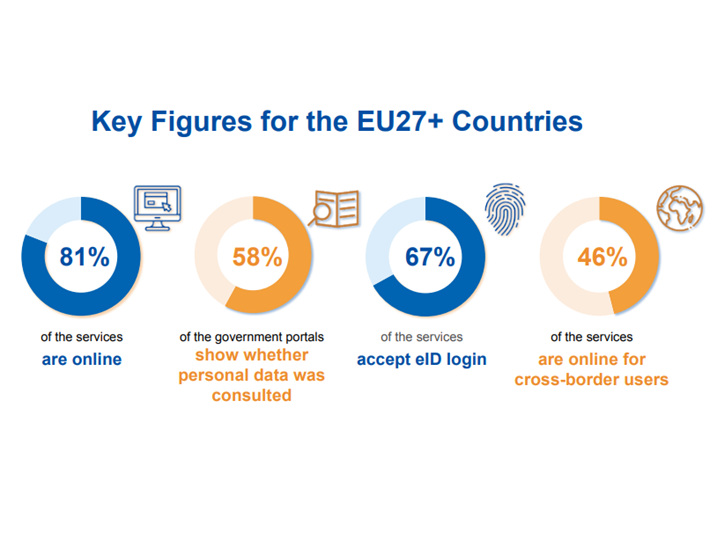
How mature is digital government in Europe? To answer this question, the eGovernment Benchmark compares yearly how governments across Europe deliver digital public services. It evaluates eGovernment services in the 27 EU Member States as well as Iceland, Norway, Switzerland, Albania, Montenegro, North Macedonia, Serbia and Turkey. In the European Commission’s 2022 eGovernment Benchmark report, four dimensions of eGovernment have been measured: User centricity – To what extent are services provided online? How mobile friendly are they? What online support and feedback mechanisms are in place
